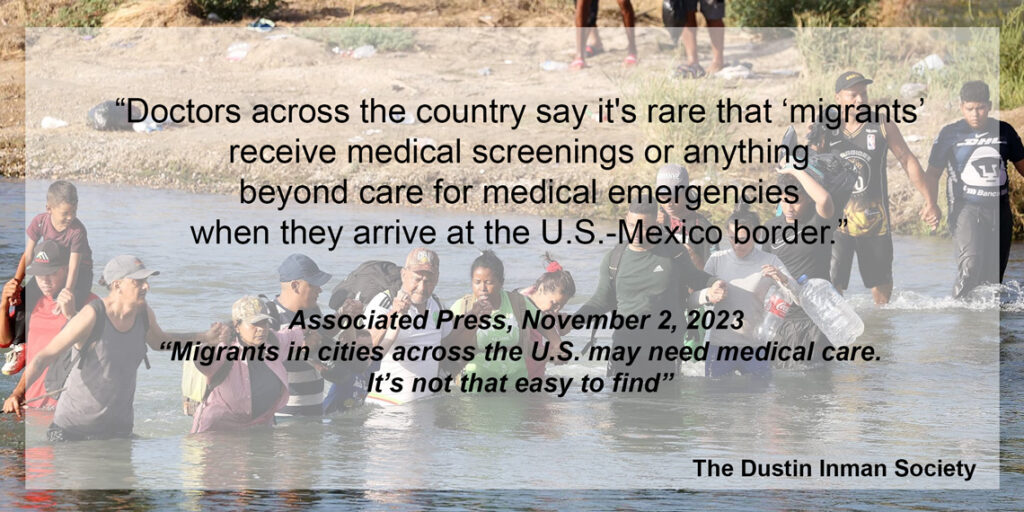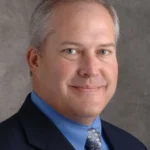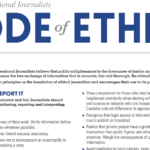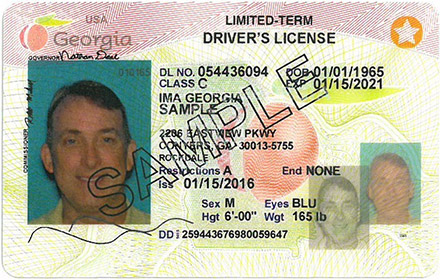
The below is a transcription of an FOP candidate event on Wednesday, June 5, 2024 in which Cobb County Sheriff and challenger David Cavender responded to questions. The transcription is from an audio recording from the Facebook Live broadcast.
- The exchanges and statements related to 287 (g) are emphasized in bold type.
Transcription by Rev.com. My cost $134.00 and about five hours of my time.
Facilitator:
Okay? All right, so first person up. Thank you, Sheriff.
Cobb Co. Sheriff Craig Owens:
[inaudible 00:00:11]. Hey, good evening, everyone.
Audience:
Good evening.
Cobb Co. Sheriff Craig Owens:
I don’t have to introduce myself, but y’all [inaudible 00:00:15]. So, um, I’m Craig Owens, the current sitting Sheriff of Cobb County, the 43rd Sheriff of Cobb County. Um, took over in the last election into a office that needed some change [inaudible 00:00:28] I like to consider myself to be a change agent. And we came in and we started making some changes for the better of the sheriff’s office. Uh, included in that change, I’ve kinda used my military [inaudible 00:00:38] my military background, to start making those changes. It’s all about leadership, training, education, and to have a good knowledge base. And that’s how we started focusing on rebranding the sheriff’s office.
We actually did have to re-brand our sheriff’s office because it just did not have a good look at that time. So, that rebranding really started with educating our employees. When I first got in the office there, our employees were not allowed to take training without taking annual leave. So, we had to change that. It also meant looking at how our overall organization was being brand. So, we looked at that structure and h- how we had to change that structure to make it better for our employees and for the citizens of Cobb County. And I have some notes, because we did so many things, I wanna make sure I didn’t leave anything out for you.
Um, but we first [inaudible 00:01:20] want to start doing [inaudible 00:01:21] we had to re- really look at our equipment set. When I walked in the office three, four years ago almost, we had 1997 Crown Vics still in stock, still being driven, which is totally unacceptable. None of our cars had in-car video cameras. Coming from PD, that was totally unacceptable. And very few had body cameras at all that was even working, if they even had them. So, we had to do a new equipment outset for the whole agency. So, that’s one of the priorities we get into of resetting our equipment and technology for the agency.
So, we started purchasing new vehicles that outfit our outdated fleet, which was absolutely bad when we got in there. So, we started doing that. Not only that, our uniforms was not in good repair, were not conducive to what we had to do to do the work that we had set forth [inaudible 00:02:07]. So, went into a new uniform [inaudible 00:02:09] change. As [inaudible 00:02:11] we created a, uh, committee [inaudible 00:02:13] companies [inaudible 00:02:14] the best [inaudible 00:02:15] going forward, to get a new working uniform that would be efficient for them.
Not only that, our infrastructure was not, apparently, uh, where it should be. We had to replace several roofs at our detention center. We have a building, if you don’t know, it’s the only building in the county that’s never been renovated. Built in 1966, occupied in ’68, and it’s never been renovated, only one in the county. So, we had to get infrastructure work done as well, and that’s very expensive. So, that cost us a lot of money, but that money came from sponsor projects [inaudible 00:02:41] allocated let us do a lot of those things [inaudible 00:02:42].
So, those are the things we started in the beginning. We also had to look at how we could help out our community. You know, our south side of the county, coming from south side, [inaudible 00:02:49] precinct community are, was needing a lot more visibility. And so, wanted to move some folks down there, get more visibility, get PD help if they needed it, not to take over. To make sure… A lot of y’all were saying it’s my job [inaudible 00:03:01] never, ever wanted to take over the PD. I heard that several times and that’s not our forte. Not what we do. We got enough business on our own.
But my job is to assist anyone [inaudible 00:03:17] county. As the highest ranking law enforcement official in this county, it’s my job to ensure that I back up everybody in this county. Whether the PD, the city, it doesn’t matter. However, it is my responsibility, as a constitution [inaudible 00:03:25] to do that, and provide everyone the proper service and backup they need. And that’s what we plan on doing at sheriff’s office. [inaudible 00:03:33] if I just give you help if you need it. And a lot of times you don’t need it, but if you do need it, we’re there to provide it for you.
We brought some new units back into play that was out of service that I felt w- needed to be put back in service. We brought a new unit, a drone unit into play, which helped us on contraband [inaudible 00:03:45] facilities. Also, we are the only ones in the south that [inaudible 00:03:48] have a drone trailer that can detect where drones were flying from, nomenclature and things of that nature. We brought back mounted patrol unit, we brought back fast unit, and we brought back the mobile stopping unit. We also added additional units into our community engagement unit, which [inaudible 00:04:02] brought back bikes into that unit. Need bikes in that unit so they can help out on, in, um, on, on [inaudible 00:04:09] trail and other places in the communities in different, uh, events. And we need to have those men and women added to, um, operate effectively.
We’ve also had to work on pay parity issues. I know the PD don’t, didn’t know that, but they still had a pay parity issue [inaudible 00:04:21] It wasn’t equal to what y’all was making, so we had to work on that. Som it took us almost a year and a half to get our pay parity up. I think within the last three years, they can attest that they’ve received at least three or four increases at the SO to get us in a pay parity of the PD so we can be equal in pay and structure in that right. So we did that, not ou- not only ou- for our sworn, but for civilians as well. So we did a work, a lot of work in the last couple years on pay parity and getting us where we need to be from, uh, from that perspective as well.
Our hiring process, we had to revamp how we hire people at the sheriff’s office. I also [inaudible 00:04:54] when I came into office. Uh, I took a deep dive, how can we re-change how we hire? Um, and we focused through a hiring board, made, uh, [inaudible 00:05:05] command staff level. Similar to the PDs. Worked out very well. [inaudible 00:05:10] more efficient, um, quicker hiring process in place. But we took it a step further, we [inaudible 00:05:15] innovative in our hiring process. We don’t only hire here, we hire across the United States and abroad, if we have to. We look for, uh, diverse, young, educated folks to come in our workforce and make this a great facility and [inaudible 00:05:27] facility, but good b- organization to come to. And as of today, we have the lowest vacancy rate in metro Atlanta [inaudible 00:05:32] state of Georgia for a agency of our size. The lowest.
Also, we also had to look at how we reta- retained these individuals. It does us no good to hire 100 [inaudible 00:05:32] if I lose 200. So, we’re the only agency right now to have a retention specialist come and help us retain individuals, find out why they wanna leave, try and encourage them not to leave. What can we do better to keep them in our agency? Very similar to what you do in- in the military. So, those things have been working well for us right now as well.
For our promotion process, the process is broken. So, we had to redo that process. Now we have outside assessors come in and, and [inaudible 00:05:32] folks, vali- validate them from the outside without [inaudible 00:05:32]. Now it’s a clean, fair process what we have in place, and, and that’s been working phenomenal for us as well. [inaudible 00:05:34] promotion process [inaudible 00:05:34] diversity at the Sheriff’s Of… And I’m not talking about race, I’m talking women equality in our agency. [inaudible 00:05:35], uh, an issue going across the nation [inaudible 00:06:31] women in law enforcement.
We had exceeded that number already. Cobb SO has more women in the command structure than anyone in [inaudible 00:06:40], anyone. So, we [inaudible 00:06:43] area. And our diversity, I can tell you what it is. We got 48% white, 48% black, and 4% other. And our percentage for diversity for our women [inaudible 00:06:54] command [inaudible 00:06:54] 24% are women are in the command [inaudible 00:06:57]. Phenomenal. Phenomenal.
So, we’ve done some great things over the last, um, few years which has made us become, I think, one of the best sheriff’s office in the state of Georgia. We’ve been recognized as [inaudible 00:07:10] one of the most upcoming sheriff’s office in the United States. That’s because of our technology and our hiring processes. We also get recognized state of Georgia up in the [inaudible 00:07:19] in the state that received a Triple Crown Award. Very, very hard to get. Very hard, and we did in this [inaudible 00:07:25] three years. Unheard of. We accomplished that. We had a mission, we got it done. And now, you can call… we will be called a professional agency because now we have professional standards, which we did not have before.
So, we’ve been doing some great things with our accreditation. We’re the second agency in the state of Georgia to have [inaudible 00:07:59] healthcare accreditation. Only two in the state, and we’re one of ’em. So, [inaudible 00:07:59] a lot of things. We were the first agency in the state that had two-way bodycams. We were the first agency in the state to have AI [inaudible 00:08:01] which we started, uh, about a month or so ago. Went to the DA’s office [inaudible 00:08:01] to certify that program and how that’s gonna work. No one else in the state has that.
We’re leading the way in technology and how we police in the future. We’ll be the first agency [inaudible 00:08:10] next month to have robotics in our jail. First one. We got [inaudible 00:08:16] when it comes to see what Cobb County’s doing. So, we’re doing some phenomenal things here. Phenomenal. We are are recognized by the Georgia State Assembly of how good the sheriff’s office have been, and what we’ve been doing in our innovation and technology. Recognized on a national level [inaudible 00:08:31] Major Sheriff Conference on several different levels.
So, we’re doing some phenomenal things there. Let’s talk about our community engagement. I think it’s very important. Our community engagement has grown three times since we take office, and it’s about working in our community [inaudible 00:08:46] have increased that 110%. 110%. We’re working on schools, that’s elementary schools and middle schools primarily. We do things for our youth for the Christmas [inaudible 00:08:59] backpacks for ’em. We feed, uh, over 600 families on Thanksgiving and Christmas time and holidays, give over 3000 toys for kids during the holidays and make sure they have a good Christmas. So, our community engagement is working very hard.
[inaudible 00:09:13] community engagement with the school system, within, um, the Cobb School system, of course. And that’s going very well. On the education portion, we have, uh, one of the best GED programs just start up recently. Uh, you seen [inaudible 00:09:30] I’m pretty sure, uh, uh, [inaudible 00:09:30] see the program and how it’s been touted across the state, how [inaudible 00:09:31] GED program. It’s been going phenomenal. [inaudible 00:09:35] that, our inmate release, um, work program is phenomenal. It’s been touted by the state as one of the best in the state. It’s a Construction Ready program, where we get them how to learn Construction Ready, um, jobs inside the facility for welding, um, brick mason, [inaudible 00:09:50] iron work, sheet [inaudible 00:09:52], uh, roofing, AC. All those things that get taught at [inaudible 00:09:55] they got a productive life outside the facility.
Not only that, we work [inaudible 00:10:00] guarantee these young men and women can get a job between $45 and $60 an hour. And on some of the cases [inaudible 00:10:06] come through, we give them a car, pay for the insurance for the year to make sure that they successful so they don’t have no reason to come back in our facility [inaudible 00:10:14].
Some awards [inaudible 00:10:18] received [inaudible 00:10:21] how I think we’ve, well we’ve been doing. When you see the Triple Crown Award, um, for myself, received [inaudible 00:10:27] award from the state of Georgia, outstanding service [inaudible 00:10:30] in, in the community for the state of Georgia, commun- community policing award from the Georgia. Also, [inaudible 00:10:36] one sheriff aware [inaudible 00:10:39] won last year as well.
Upcoming things that you need to know about, things that are important. And for us, it’s really about preparing for the future. If we don’t prepare for the future now, we’re gonna be behind later. So, that’s what we’re doing at the sheriff’s office, preparing for the future. By making sure that all our people are properly trained, properly educated, and well-fit for the job titles and places that they’re in. So, [inaudible 00:11:04] about three minutes left, so I’ll pause here and see if there’s some questions before I, I end. Yes, sir.
Facilitator:
[inaudible 00:11:12] microphone. [inaudible 00:11:14] microphone.
Questioner 1:
Thanks, Sheriff. Uh, I… You mentioned, uh, diversity in the command staff. What is your rank and file diversity look like?
Cobb Co. Sheriff Craig Owens:
So, our rank… uh, my cam- command staff starts from captain, major, lieutenant colonel, colonel, assistant chief, chief deputy, and the of course [inaudible 00:11:37] me.
Questioner 1:
Tell me the diversity of your rank and file. Those for the low command staff.
Cobb Co. Sheriff Craig Owens:
And, oh, so I have diverse, uh, and below that as well. So, I have several diversity [inaudible 00:11:48] as to females that are black and white, of course. I have very… I do not have a lot of Asians, I admit that. [inaudible 00:11:56] population [inaudible 00:11:58] diverse in black and whites and males and females.
Questioner 1:
Okay. And I’m sorry to have asked you that without you being prepared for that question-
Cobb Co. Sheriff Craig Owens:
No, that’s fine [inaudible 00:12:04].
Questioner 1:
[inaudible 00:12:04]. Uh, also, how, how are and the board of commissioners getting along as far as you’re budget’s concerned?
Cobb Co. Sheriff Craig Owens:
I have no issue with the budget. I’m not overdrafted in my budget [inaudible 00:12:17] been raising cane about it. You might have one commissioner who may not like what we spend and what I buy, but that’s a personal preference about him or her. So, as a sheriff you don’t know… Once a budget’s signed, that’s the sheriff’s budget to spend as he or she sees fit. Long as I’m gon- do not go outside of that budget. If I go outside that budget, I have to make a request [inaudible 00:12:34] DOC to ask them for funding. The only thing [inaudible 00:12:37] more funning, funding for was southside [inaudible 00:12:39] earlier, but that’s gonna come over [inaudible 00:12:43] revenue projection, and that money will come out of that.
And the sheriff’s off… I’ll tell you something. One of the [inaudible 00:12:49] question for Maddie, [inaudible 00:12:51] to have office business [inaudible 00:12:54]. To ask them, “What can you do to bring money back into Cobb County?” This [inaudible 00:12:59] session, I was able to get just under quarter a million dollars sent back here to Cobb County to help us pay for some radio upgrades for Cobb County. Not for the sheriff’s office, but the whole county. That’s for the cities as well, and the fire department. So, not only I go out trying to find resources [inaudible 00:13:13], um, to DC to have those, um, [inaudible 00:13:16] meetings with the congressmen and senators. And that’s how I think I’m trying to get back, bring money back into Cobb County as well.

Questioner 1:
Okay. And now, my last question deals with, um, this, uh, focus on immigration in this country. How are you handling that, and how are your, um, uh… How are you getting along with federal authorities and ICE in taking in people who should be deported?
Cobb Co. Sheriff Craig Owens:
Right. That’s a great question ’cause this, this comes up all the time. And I’m gonna tell you, there’s bold-faced lie that goes, that go around, it’s been talk, um, said about what we do with immigration. Cobb County Sheriff’s Office never stop, never stop holding ICE individuals. I can show you receipts for when I get the money from holding ’em. So, that’s a bold-faced lie when they tell you that we don’t work with ICE.
We work with ICE. When we ended the 287(g), what that means was I was not giving them free labor from the sheriff’s office (to?) administrative paperwork. That’s all it meant. ICE come out three, four days a week, they got a hold, we hold ’em for 72 hours. They don’t come pick ’em up, they’re transported to a facility. So, I know that state law. It was always [inaudible 00:14:22 “been we?”] cooperate. We know about it as state law. The law that require that you give them free labor, which is [inaudible 00:14:27]. So, we’ve never not cooperated with ICE. We have a great relationship. We have a agent that we deal with all the time [inaudible 00:14:35] actually comes in our facility on a regular basis. So, we have no issues with that. We, we get along. And a new law this, that went in effect doesn’t affect us we’re doing everything we should be doing anyway.
Facilitator:
[inaudible 00:14:42] question [inaudible 00:14:42]. Any other questions?
Questioner 2:
Yep.
Facilitator:
[inaudible 00:14:42]. Last question [inaudible 00:14:42].
Questioner 2:
Sheriff [inaudible 00:14:42] on expanding the investigations division under your command to be able to conduct [inaudible 00:14:42] investigations, such as when somebody in the field takes a report and then sends it up the chain so the sheriff’s office can handle it from start to finish.
Cobb Co. Sheriff Craig Owens:
We do that internally now [inaudible 00:15:25] inside a jail, it goes up to our [inaudible 00:15:29] investigators. For the external guys, we have put a lot of thought to see if we want to expand it, to see if they could help them out as well. So, that’s something I may look into [inaudible 00:15:35] see if we have capability to expand that and make it a bit more broad and do more things other than having jail functions as well.
Facilitator:
Thank you.
Speaker 6:
Thank you, Sheriff. That concludes your time.
Facilitator:
I’m gonna reset for David.
David Cavender:
[inaudible 00:15:53] make sure that it’s equaled out, can you set your clock at 15 minutes and 30 seconds (laughs).
Facilitator:
All right, hold on now.
David Cavender:
Just saying.
Facilitator:
All right. Go ahead, David.
David Cavender:
Truth, trust, and transparency. [inaudible 00:16:16] familiar ’cause it was a slogan from [inaudible 00:16:21] Owens when he was a candidate four years ago. During that time, he really held Sheriff Warren to the fire on several issues that include overspending, mandatory general overtime, low morale, transparency, trust, and in-custody death. Owens promise to [inaudible 00:16:36] to the taxpayer money, improve [inaudible 00:16:36] inmates, and the personnel working, uh, in the detention center, and lower the in-custody deaths.
So, we’ll start with transparency. We [inaudible 00:16:58] the records [inaudible 00:16:59] on April 10th to the sheriff’s office. And Sheriff Owens, in his response [inaudible 00:17:04] requests were, one, any and all threat assessments on Sheriff Owens, including but not limited to recommending dedicated PSD as a recommendation. I never knew, uh, Sheriff, uh, Warren to have a PSD. Major Owens never had one with the PD. And the transparency we got was [inaudible 00:17:26] disclosure for security reasons.
The following, as they relate to the sheriff’s office, were ’21, ’22, ’23, and any documents relating to 2024 annual reports. We heard a lot about spending just a few minutes ago, but again, the response was, “The agency has no responsive documents.” [inaudible 00:17:49] accounts [inaudible 00:17:49] source vendors as of 2021, number of jail refusals, prisoners [inaudible 00:17:57], um, uh, arrestees are re- refused by medical staff and the reasons why. The response, “Our agency is not the custodian of those records.”
[inaudible 00:18:11] repairs and improvements in the jail since 2021, including all vendor requests, proposals, [inaudible 00:18:17] invoices, receipts for payments, again, “Our agency is not the custodian of those records.” Allocations of supplemental funds allocated to the sheriff’s office since 2021 for the purpose of jail improvements, “Our agency is not the custodian of those records.” [inaudible 00:18:40] costs for special vehicles, their use and justification, again, and it goes on and on.
We did request job descriptions, salary, time cards, and any employee related to the sheriff that works there by blood and/or marriage, and we received one back. [inaudible 00:19:05] was something they did release, and we [inaudible 00:19:10] for a minute because that was off-topic in 2020’s election. The numbers showed that Neil Warren had three in-custody deaths a year for the last four years he was in office. Since 2021, there was three the first year, four the second year, and six in 2023, with those numbers going up each year. So, we’ll see where we wend in 2024.
Those numbers don’t even really tell the whole story because the inmate intake process has become increasingly difficult, uh, under his watch. We have a number of people that get refused daily on the whims of the nurses that are there, which result in hospital trips, incurred cost, and, um, hours wasted with, um, the law enforcement that should be on the streets [inaudible 00:20:00] Cobb County.
Fiscal responsibility was another big topic that Owens campaigned on and spoken about here a minute ago. [inaudible 00:20:11] fiscally responsible [inaudible 00:20:22] that the agency owns and every building. Is it fiscally responsible to [inaudible 00:20:23] the cost to maintain horses that provide no benefit for the taxpayers of Cobb County? And is it fiscally responsible to establish a position in 2022 and hire a family member in Phillip?
And now, I wanna touch on truth. I [inaudible 00:20:47] race on March 6th. On March 29th, I received a unsolicited email from the deputy with the sheriff’s office named Julio Barroso. I can remember the day that he sent that email [inaudible 00:21:01] investigation been closed out [inaudible 00:21:04] record so I’m free to talk about it. [inaudible 00:21:07] sent that email [inaudible 00:21:09] so I just emailed back and said, “Thank you, and, uh, [inaudible 00:21:15] call in and say hello.”
Now, the email was sent on March 29th. On April 4th, one of Sheriff Owens’ executive staff assistant, Chief Deputy Gina Hawkins, sent a email to [inaudible 00:21:34] the internal affairs commander, along with Chief [inaudible 00:21:38] as the Director of Public Safety Mike Register. Just conveniently after I qualified to run against her boss. She sent an email directed at those three, and the complaint was on behalf of Deputy Julio Barroso. Statements that he made during the [inaudible 00:22:20] investigation going on with him at the time. [inaudible 00:22:20] all kinds of ethical violations, to include offering him a [inaudible 00:22:20] position should I win [inaudible 00:22:20] for information on the current sheriff, and suggesting the possibility that Barroso and I had several meetings with each other at Cobb Police Headquarters.
I have the email. I’ll put it up on social media later, in the spirit of transparency, for everyone to read. The entire complaint was fraudulent. The whole thing. [inaudible 00:22:30] saying that Barroso and I were in the same military unit, which was false, and that I had taken a interest in him after I decided to run. Again, completely untrue. We’ve never, now or never been in the same military unit. [inaudible 00:22:46] knew who he was until I received the email from them soliciting a response from me. And I never met him in person until, uh, [inaudible 00:22:56]. I never even heard of him until the 29th, when he sent the campaign, my campaign email an email. And that was confusing [inaudible 00:23:05] pretty much also [inaudible 00:23:06] make sense of. And I won’t bore you with those details ’cause like I said before, I’ll post it all on social media in transparency.
[inaudible 00:23:32] email [inaudible 00:23:33]… give me one second… She was hired by Sheriff Owens after she left a position in [inaudible 00:23:46] Carolina where, at the time, at least eight ethical violation complaints against her. I’ll stick with eight. The number varies, but eight is what she gave a response to. And then, it’s a chronical- chronological list of events. I declare to run for sheriff on March 6th. Three weeks later, on the 29th, Julio Barroso, again, someone I’ve never heard of in my life, sends me a email. And on April 4th, Assistant Chief Deputy Gina Hawkins submits the complaint to Cobb Internal Affairs on behalf of a deputy that, at that time, I never even met [inaudible 00:24:27].
Oh, I’m sorry. On April 11th, he sent me a friend request, which I didn’t accept. And then he showed up to one of my events [inaudible 00:24:38] in front of the [inaudible 00:24:43] soliciting responses. Um, when he continued [inaudible 00:24:51], he told me that he was under a current Internal Affairs investigation with the sheriff’s office, and that somehow I was involved in it. So at that point, I took out my phone and began to record. I told him I really couldn’t speak to him anymore [inaudible 00:25:06] because I felt it was probably a setup. That was April 11th.
Tuesday, April 16th, I get a call from the commander of Internal Affairs Major Ballard to come to Internal Affairs to be interviewed and told about the allegations that Barroso against me. I explained the situation to Major Ballard and showed him the emails and my responses, along with the, uh, recording I made of him. And the entire complaint was found to be completely unfounded and fabricated. That was Tuesday, April 16th.
Wednesday, April 17th, I had an event again where Barroso showed up the next morning in an attempt to flag me down and solicit conversation and stand by to overhear any conversations that were going on. And then two days later, he was fired. A complaint was made to Cobb Police Internal Affairs alleging egregious misconduct on my behalf. It was taken so seriously that, that Internal Affairs commander, Major Damon Ballard, conducted the investigation and then went to the sheriff’s office to interview said complainant and was refused access. [inaudible 00:26:30] so he could watch the interview that he gave to the sheriff’s office internal affairs.
Again, it doesn’t sound like transparency. Sheriff Owens talks about how his agency is almost fully staffed [inaudible 00:26:45] any other partner agency in the county can tell you that it takes an extensive amount of time to get anyone into the jail. And I believe a f… the deputies were [inaudible 00:26:58] way that the [inaudible 00:26:59] don’t run exactly at a hundred percent. Which I can’t connect those numbers if the agency itself is at a hundred percent.
I’m not here for personal gain, recognition, the title of sheriff. My ego and so forth are not that fragile. I’m here because I watched what he campaigned on and he’s failed to do most of it. Except getting rid of the 287(g) program. I’m all about reducing recidivism. I think [inaudible 00:27:30] maybe slightly a step over the line. I’m here to promote [inaudible 00:27:38] sheriff’s office personnel and key positions that they should be in and give them the authority to do their job. Not bringing outsiders in who have no idea how the agency should run, and are only here to pad their retirements and use them as a stepping stone. I’m here [inaudible 00:27:56] once again for the citizens of Cobb County and the employees of the sheriff’s office, not for personal benefit. I’m David Cavender, and with your support, I’ll be the next sheriff of Cobb County.
Facilitator:
Any questions? Yeah.
Questioner 3:
You mentioned a, what was it, 257 (g) program?
Facilitator:
287.
Questioner 3:
[inaudible 00:28:36] 287. Uh, excuse me, I’ve been out for about 20 years, so… Um, what exactly is that program?
David Cavender:
That’s the partnership with, uh, ICE and immigration working in the jails. The sheriff [inaudible 00:28:52], um, it sounds like he said it’s still in place, which I’m kinda confused on because he’s on the cover of the AJC, January 19, 2021, talking about how it was removed.
Questioner 3:
Okay. And you also heard the sheriff talk about the improvements that he has made since he took office. Is it… Are there any other improvements that you feel like need to be made there? And do you think you can secure the budget for those improvements?
David Cavender:
Uh, yeah, [inaudible 00:29:23] I have to get in and take a deep dive into a lo- a lot of it. Um, it’s not as transparent as is, uh, advertised. But, uh, I think a lot of it would refer to almost like a triage type position where you focus back in on the actual duties and responsibilities of the sheriff’s office and then branch off from there.
Facilitator:
Anybody else? Over here.
Questioner 4:
I had [inaudible 00:29:35]. Mr. Cavender, how long have you been in law enforcement?
David Cavender:
I’ve been with the Cobb County Police Department for 15 years.
Questioner 4:
And what’s the most people that you’ve supervised in the 15 years?
David Cavender:
I’m currently a sergeant on [inaudible 00:29:57] we have approximately 16 people on the shift.
Questioner 4:
16 people? Does the county have a nepotism policy?
David Cavender:
Uh, there is a nepotism policy that the county does have, yes.
Questioner 4:
What is the policy, please?
David Cavender:
I can’t recite it verbatim.
Questioner 2:
Uh, the same question that posed to Sheriff Owens. Um, have you got any plans to expand the investigative division of the sheriff’s office to be able to accommodate, um, investigations that are starting in the field and then conclude, um, within the sheriff’s office?
David Cavender:
They originate… The investigations originate with the sheriff’s office?
Questioner 2:
Yes, sir. So, um, I’m Deputy Knowland, and I’ve made a traffic stop, and it turns into be something else, right? It’s gone beyond the scope of the stop. Probably cause exists, but it needs further investigation. Uh, do you plan e-, um, expanding the investigative unit to be able to handle it? Versus taking the initial report and then having to turn it over to another agency for further investigation.
David Cavender:
I mean, to answer the question [inaudible 00:31:09] right now we’d probably have to partner with some of the other agencies that are in place. I don’t have any initial plans to create any more positions or other, um, departments [inaudible 00:31:19] the sheriff’s officer right now.
Facilitator:
[inaudible 00:31:22] very good. So, if Sheriff Owens would come up. So, this is [inaudible 00:31:24]. So, this the 30-minute segment where it’s like open floor. Um, if you wanna direct a question… okay. Reset the clock at 30 minutes, and just give me a few minutes. Um, if, if you wanna direct your question at both of them, uh, or do follow up, and then I think because, um, of the two candidates’ conversations, um, that we probably need to give, um… Can you not hear me? So, we’re going into the third [inaudible 00:32:08] period. So, it’s open floor. Uh, you can ask one or both, um, a question. Let’s hold it to a single question if at all possible. Uh, not more than two. Um, and then we’ll pass it on to the, to the next person. Y’all are gonna have to kind of hand the microphone back and forth, whoever it’s pointed at. Any questions before we start clock? It’s an open floor. Any question that y’all wanna ask [inaudible 00:32:36] particular [inaudible 00:32:37]. Okay?
Questioner 5:
Uh, this question is for Mr. Cavender. Um, historically, both the sheriff’s department and the police department, um, have had [inaudible 00:32:52] long wait times. Um, some of it had to do [inaudible 00:32:55] staff [inaudible 00:32:56]. What do you plan to do to, to make those, uh, times a little bit quicker for the, for the officers?
David Cavender:
I plan to staff intake in the detention center to a hundred percent, and then give, um, the nurses and medical staff the authority to refuse on medical emergencies unless, uh, legally, um, legally [inaudible 00:33:16], uh, to refuse the custody of inmates [inaudible 00:33:16].
Facilitator:
Next.
Cobb Co. Sheriff Craig Owens:
I’m gonna have to clarify, I’m sorry y’all. I just [inaudible 00:33:16]. Um, so I’m gonna make sure you understand some truths so you can understand. So, um… [inaudible 00:33:16] trying to hold my composure. Because I wanted to make sure, when you say about truth, trust, and transparency, that we’ve done just that. If you look [inaudible 00:33:16] I took office, everything I said I was gonna do since I took office, [inaudible 00:33:16] look at it, I’ve done it, I’ve accomplished it. Bar none.
These other things, I, I thought it was a conversation of us talking on what we’re doing, but not to make accusations and things [inaudible 00:33:16]. But if that’s the case [inaudible 00:33:16] as well. To be the leader of this agency, you gotta be a leader. You gotta have experience, you gotta have knowledge, you gotta have education. Which my opponent don’t have. You gotta have that experience to take over a agency with 850-plus, the third-largest agency in the state of Georgia with no experience. [inaudible 00:34:28] supervising 16, and you think you can take over 800-personnel agency with no experience and no leadership? Very hard to do.
Now, I don’t mind having a candid conversation in telling me what I didn’t do if it’s honest. But the things you’re saying is not honest. I told you the truth. And what’s been said by him is not truthful. And I can tell you that for a fact. That’s my employees [inaudible 00:34:53] truth. Ask my employees, they’ll tell you the truth. Ask somebody who works there. These things he’s saying, it’s absolutely not true. It’s, uh, upsetting that we allow that to occur, ’cause that’s not how I’m told this is gonna work.
Now, if you wanna have [inaudible 00:35:06] conversation back and forth about what I didn’t do [inaudible 00:35:10] I’m good with that. But it’s about telling me what I’ve done and what we’re gonna do to this agency. Now, [inaudible 00:35:18] he mentioned [inaudible 00:35:20] (287 (g)? ) did say I got rid of it. Again, they didn’t know the insides of it. I got paperwork from ICE to prove it. [inaudible 00:35:29]. So, telling us we’re not doing that and tell people lies, and to get broadcast across community that we don’t cooperate with ICE, totally a lie.
And transparency, we’ve been nothing but transparency. [inaudible 00:35:43] have laws, you know, ask [inaudible 00:35:46], he’ll tell you what you can and cannot answer [inaudible 00:35:48] asking those questions. It’s not that we’re hiding, we’re following exactly what the law say that how we should respond. And when you don’t ask for the right thing, you don’t get the right thing. You get what you ask for. So, I just wanna clarify that to you so you have understanding. This agency, and me in particular, and [inaudible 00:36:08] chief, assistant chief, first and foremost, she was [inaudible 00:36:12] she was cleared of every one of those charges you mentioned. Go an [inaudible 00:36:15] research. [inaudible 00:36:15] and won. But you’re leading them to believe that I bring in someone who’s not qualified, that’s not educated. She has a master’s degree and wrote her doctorate, FBI Academy graduate, more than anybody… [inaudible 00:36:30] anybody, more than most people in this office have. A former chief, a former deputy chief, a former major. [inaudible 00:36:36] pass the rank of a sergeant, and you’re gonna disdain a 20-something year [inaudible 00:36:40].
Facilitator:
[inaudible 00:36:42].
Cobb Co. Sheriff Craig Owens:
[inaudible 00:36:42] not facts. That’s not facts. Absolutely not facts. No it’s not. But any rate, please ask your question.
Questioner 5:
Okay, so I respect all your, uh, your accomplishments that you say you’ve done. One of the biggest things that affected me and our crew is the wait times at the jail. And, uh, do you have plans… or what is… How can you solve [inaudible 00:37:09] jail and they’ll spend an hour and a half, two hours-plus at the jail. Um, does it… Um, it’s not a huge impact on the county, per se, but we’ve got work to do, right? And then, and I think it affects the precinct [inaudible 00:37:27] taking up one or two officers off the shift for two hours. Um, I’m not saying that it’s your personal fault, it’s just this has been an issue for a very long time, and it doesn’t seem to ever get fixed.
And, uh, just last week, we had guys at the jail over an hour, over an hour and a half. And so, what are your plans, or what are you doing, or [inaudible 00:37:52] on fixing that to get those wait times down? Because that’s what [inaudible 00:37:57] out on the street.
Cobb Co. Sheriff Craig Owens:
Great question. So, [inaudible 00:37:59] I can tell you right now, you’re not gonna walk in this jail and be out within 30 minutes. Ain’t gonna happen. Probably closer to a hour is probably what we’re trying to strive for because we gotta put medical [inaudible 00:38:10] a medical [inaudible 00:38:11] to make sure they’re fine. And he made a mention was… Cavender had mentioned about he would give the medical, um, personnel authority to refuse. They already have authority. That’s why a lot of times, you get delayed. Because the medical will not accept it. I cannot take that responsibility from medicals, then I get sued. I came to this office with 15 lawsuits pen- pending because of medical malpractice in that facility.
So, we had to [inaudible 00:38:39] divide a new program so we could adequately check them in. [inaudible 00:38:43] and plus, I’m the third one here [inaudible 00:38:45] drop ’em off and [inaudible 00:38:46] get back to the call, I got it. But that responsibility comes back on the sheriff. These lawsuits, if you come in and you drop ’em off, once I accept them, I’m responsible. I’m getting sued, not the PD. I am. [inaudible 00:39:00] leans on my house, that house, we got several lawsuits because we did not process them correctly and make sure they got proper medical treatment when they come to that facility.
So, yes, we are slowing down and making sure we get them, uh, done correctly. But my [inaudible 00:39:16] within a hour. I know that’s not always the case. Sometimes it be a hour and a half, two hours, and it might even be more sometimes, depending on how many people, the volume that comes in. But the PD is not the only people running people in too. We got [inaudible 00:39:27] other people. You know [inaudible 00:39:30] other folks as well. So, I’m trying to do best we can with that. We’re looking at how we can make that a better, seamless process, but I cannot speed up the medical check-in process ’cause that is crucial for us. It’s not [inaudible 00:39:43] because when we get sued, that’s the whole county which delays you getting a pay raise, and I get a pay rise in the future because [inaudible 00:39:50] these lawsuits. So, we gotta be very careful about that. We gotta take those people in.
Now, we ask our nurses to be as quick as they can. That’s why the reason [inaudible 00:40:05] the two-way body camera now so we can have [inaudible 00:40:05] we can look and talk to them back and forth [inaudible 00:40:05] take ’em in. Those improvements, trying to do the work through technology to fix that. So, we haven’t got where we wanna get to yet, but we’re definitely working toward trying to get that process up and get it [inaudible 00:40:15].
Questioner 5:
[inaudible 00:40:15] processing is they’ll go in and there’s only… or what I’ve been told, there’s only one intake officer working. Or there’s nobody at the counter, and people [inaudible 00:40:24] this, that, the other, or they’re just, it’s just one person in there booking a whole bunch of people. And so, is it possible, do we need to hire more nurses? Do we need to have more book-in [inaudible 00:40:39]? It’s always just that there’s not very many people [inaudible 00:40:44]-
Cobb Co. Sheriff Craig Owens:
So, if you’re talking about [inaudible 00:40:46] people there that [inaudible 00:40:47] talking, so that’s never been brought to our attention ’cause [inaudible 00:40:49] spoken to if they’re back talking about process [inaudible 00:40:52]. But if I don’t get a chance to know that, I can’t fix it.
Questioner 5:
Well, [inaudible 00:40:56]-
Cobb Co. Sheriff Craig Owens:
[inaudible 00:40:56] if they’re not, you know, giving y’all attention when you come in [inaudible 00:41:02] talking conversations [inaudible 00:41:04] process, then those things, we need to know so we can change. ‘Cause it may just be a personnel issue, and not as personnel management issue at the intake by the sergeant, lieutenant, and that major who’s there to make sure they’re making the folks [inaudible 00:41:18] to get you in and out quicker. But we have to know that. And I can tell you this, [inaudible 00:41:24] plus, I don’t know everything that happens. Right? I don’t know everything, but only I can take advantage of it when I’m told that. That’s what [inaudible 00:41:33] when I asked, when I’m told what you’re telling me, I act on it. But if you don’t tell me [inaudible 00:41:37] and people complain and don’t tell me what the issues are, I can’t fix it, right? So, once you bring it to me, we’ll fix it. At least I now shall try.
Speaker 6:
Any other questions?
Questioner 6:
I have a question for Sergeant Cavender.
Facilitator:
Hold on, [inaudible 00:42:07].
Questioner 6:
Sergeant Cavender, my name is [inaudible 00:42:16]. I’m not a voter in Cobb County. But I’m representing my mother who is a voter in Cobb County who’s too elderly to be here today, but whom I’ll be taking to, uh, the election. You talked about the incumbent’s leadership team being hired to pad their re- retirement, and that they’re not qualified. If I heard you correctly, first question is, who are these leaders that are padding their retirements and who are not qualified? And secondly, does that mean if elected, you would replace these career leaders who depend on these jobs for their livelihoods?
David Cavender:
[inaudible 00:42:50] your question. There’s a lot of people that came in that were retired from other positions that had no experience in the sheriff’s office either. I noticed you were there when that has been with the sheriff’s office and promoted their way up into these command positions. As a matter of fact, I think [inaudible 00:43:07] be more of it. Again, I believe that was about a three-part question. What was the other part?
Questioner 6:
The other part was do you have plans to replace the career leaders that work in the agency today? Those who you feel are padding their retirements and who are not qualified as they were hired. Which is what I heard you say [inaudible 00:43:28].
David Cavender:
[inaudible 00:43:29] certainly will be a little bit of changes, and I do believe that most of the promotion should come internally from the sheriff’s office.
Questioner 6:
And also, in running for the sheriff, have you stated who your chief deputy is going to be?
David Cavender:
Uh, yeah, that’s on record [inaudible 00:43:42] Mike [inaudible 00:43:42] and he retired from the sheriff’s office in December with 30 years there. Or 29, let me be correct.
Questioner 1:
I’m just gonna, I’m just gonna throw this out here for both of you. Um, I was with the sheriff’s office for 26 years. Um, y’all taking about intake, so I know intake’s a… I worked in intake all by myself many, many, many nights. Um, so I know how it us. Um, so a lot of times, it is just, you know, one person patting people down, and that’s it. Um, but that’s not really my question.
Uh, my question is, have either of you, since you’ve both been in the PD, would you consider bringing… kind of coordinating with the PD and requiring PD officers to work six months or a year in the jail as part of their training? Would either one of y’all consider that or think about that? Um, I don’t know if there’s a way to cross-train and actually to, um, you know, have more personnel in the jail. But I, I always thought… I see things out on the street, and I think, “If tha- if that officer just had a little bit of training in the jail, you know, working little bit closer with these inmates day to day, you wouldn’t have seen that accident happen, or you wouldn’t have seen that kind of aggression, or you wouldn’t have seen that kind of situation. So, I just… It’s always been in the back of my mind. And, uh, just wonder if either one of y’all had ever thought about that or would consider that, or… I don’t know, I’m just throwing it out there.
David Cavender:
I haven’t really thought about it extensively. But I personally wouldn’t be opposed to it. I think that would come with some limitations as to… And I think there’s gonna be some legalities to it, as the sheriff already stated. Once you’re [inaudible 00:45:33] the jail, [inaudible 00:45:34], like, it’s his liability and his responsibility. But if there was a way to train PD people to conduct their own pat-downs and do some of more of the administrative, uh, efforts that might help, then yes, I would be open to that.
Cobb Co. Sheriff Craig Owens:
I wouldn’t. Not for six months. I think that’s, uh… I did 31 years in the PD. I’m a little biased toward PD [inaudible 00:45:58] tell people that Cobb PD is one of the best police departments in the state of Georgia. I truly believe that. Now, of course, I worked it for so long, so I truly believe it. And the reason I believe it is ’cause the training they receive. Excellent training.
But would say I would do is try to implement a little bit of cross-training in there. So maybe when I first got here 30-plus years ago, we did have a, a week or two we went to the jail… think it was like three or four days, and, and then observed what they were doing and things of that nature. [inaudible 00:46:22] that o- one of the things. So, I’d like to bring something… that back so they can really see what happens inside [inaudible 00:46:28] doing the intake and things. And now they have an understanding why it might take longer, what they’re doing, what these steps they go through. But six months, to me, is a little excessive. At the most, [inaudible 00:46:37] three to five days so they can have a, a bit of, um, co-sharing so they can understand what we’re doing.
‘Cause I will tell you, I’d really love to have s- our deputies who, um, go out and work with the PD and train with the PD as well. I’m a big proponent of that. I’ve talked to Chief about it. I think our SWAT team should do more training together. [inaudible 00:46:54] once or twice so they can, uh, understand the inner workings. Because sometime they may need us, and, and we might need them. But if we need them come to jail, they not equipped to work in the jail ’cause they don’t know what happening inside the facility.
So, I think we need to have some cross-training there, and I think that six months [inaudible 00:47:09] different. And I’m pretty sure the leadership that works to train our [inaudible 00:47:13] we can establish that, you know, SWAT trainings and training in the jail, and et cetera. And so regular deputies also train, uh, week-long, maybe, at a time to get that cross [inaudible 00:47:18] training so they have a little bit of [inaudible 00:47:18] at what they’re doing. ‘Cause [inaudible 00:47:18] they’re not gonna be [inaudible 00:47:18] certified, as you know that. But at least give them that observation period so they can see what we’re doing in there.
Facilitator:
All right, good work. [inaudible 00:47:39].
Questioner 1:
[inaudible 00:47:40] ’88, you didn’t get jail certified until you were there a year or so. I just, yeah, we were just kinda [inaudible 00:47:46]-
Cobb Co. Sheriff Craig Owens:
[inaudible 00:47:46] after they get hired, they’re going straight to school.
Speaker 6:
Are there any other questions?
Cobb Co. Sheriff Craig Owens:
So, if you don’t have a question, I got a remark. Um, [inaudible 00:48:02] let me just talk about my staff just here. ‘Cause I wanna make sure you have a complete understanding of my staff. [inaudible 00:48:09]. Uh, oh, I’m sorry, you got a question.
Questioner 7: (JM)
Thank you. Uh, Sheriff, this… I have a question for you. Um, in your opening remarks, you said that you never ended the 287(g) program. I Googled it since I’ve been here, and these three headlines come up, ‘Owens Commits to Ending 287(g)’, the Cobb County Courier, ‘Sheriff Ends Controversial Immigration Enforcement Program’ – the AJC, ‘Sheriff Declares End to 287(g) Enforcement’ the Northwest Georgia News. Are all those news reports wrong? And if so, did you do anything to correct them?
Cobb Co. Sheriff Craig Owens:
There were several times where we tried to correct them. When I said we ended 287(g), I ended my participation of giving them free labor. And I said that at the beginning, that free labor was administrative help. But I never stopped working with them and, and, and taking ICE inmates or ICE holds, or doing anything with them. I just ended my relationship with giving them deputies to do administrative paperwork inside our facility.
But the relationship never ended. Again, we get paid for ICE holds, like anybody else. We do all that. Never stopped. We never did not do what the law said we had to do regarding having immigration. And ICE still come into our facility now, as of today. Never changed. And we still [inaudible 00:49:44] as of today. So, quickly, I just wanna comment about the staff, because I think it’s, it’s, it’s, it’s not a true reflection of what you see here today or what you heard.
So, my command staff is highly educated, they’re seniors, and they’ve been here for a while. The individuals [inaudible 00:50:02] outside, I can give you one, Art Peralta came from ATF, a SAC, a SAC leader. A leader in charge of that unit for Atlanta. One of the best [inaudible 00:50:16] years [inaudible 00:50:18] investigation. How can he not be qualified? I bring in a chief from outside who’s a chief, who’s been a deputy chief at a major agency. How can they not be qualified?
Those things are really upsetting when you don’t tell the truth about my staff. Majority of my staff, they do- if they don’t have a master’s degree, they have a bachelor’s degree. If they don’t have that, they’re in school now to get it. When I came to office, they didn’t have a supervisory program like we had at PD. When you make sergeant, you gotta have some supervisor skills at school. They had nothing. Nothing. We created a program for them so they could get that.
So, I had lieutenants, even majors that had not went to one basic level supervisory school when I got there. That’s changed. They all went to the school, they’re all educated. Why the sheriff spend money always training? Because we gotta train. When you train, you fight the way you train, and that’s how you stay alive in these streets. [inaudible 00:51:22] trained into leaders first. Now that’s why they’re trained. That’s why they’re educated. And that’s why they’re more than qualified. More than qualified.
Questioner 4:
I have one more question. When we talk about the sheriff, the sheriff cannot be the sheriff of one people, one party, one group. The sheriff is the sheriff of all citizens of Cobb. So, what are your thoughts on diversity, equity, and inclusion? And how do you plan on improving that with the sheriff’s office? Sheriff, you’ve already addressed that. Mr. Cavender, that’s for you.
David Cavender:
[inaudible 00:52:02] I’m all for diversity and equity and putting the most qualified people in the positions, um, that they’re qualified for. I w- would not, uh, show favor or, uh, negative, uh, remarks towards anyone based on any of those, um, statistics that you just brought up as- about putting the most qualified people in those positions no matter what, uh, any of those preferences are.
Facilitator:
Anybody else?
Questioner 4:
I have another question [inaudible 00:52:36].*
Questioner 7:
So, Sheriff, I don’t wanna beat a dead horse on this 287(g) thing.
Cobb Co. Sheriff Craig Owens:
Yeah.
Questioner 7:
But people are gonna look, people got their Google at their fingertips, so they’re gonna look, and they’re gonna get conflicting information. On ice.gov, on ICE’s own website, there’s a list for participating agencies. Cobb County is not on there. What is the criteria to be listed as a participating agency to give them manpower to work…[inaudible 00:53:02]?
Cobb Co. Sheriff Craig Owens:
That you give them manpower to work with them.
Questioner 7:
Okay, so just the manpower? ‘Cause people are gonna look [inaudible 00:53:12]-
Cobb Co. Sheriff Craig Owens:
[inaudible 00:53:12] manpower to work with ICE [inaudible 00:53:12] agency. Again, I don’t supply the manpower.
Speaker 13:
Why not?
Cobb Co. Sheriff Craig Owens:
I’m sorry?
(cross talk)
Speaker 13:
Why not?
Cobb Co. Sheriff Craig Owens:
‘Cause I need it in the jail. I need that manpower there. Why give them free labor? And they come… They, they stay there anyway. So they can just do their own [inaudible 00:53:34]. And I [inaudible 00:53:34] doing something else. Just re- reallocation of resources. It’s like we do in the military, reallocation of resources to get the job done. And they can do it [inaudible 00:53:43] have another guy doing [inaudible 00:53:44].
And what it actually does, if you didn’t know (laughs), is force them to send them in there more often. It forces them to come more often a- and do more things. So, that’s good for them as well [inaudible 00:53:53] the facility [inaudible 00:53:54].
Speaker 13:
Could you put that in your budget, though, for, uh, next year?
Cobb Co. Sheriff Craig Owens:
[inaudible 00:53:59]-
Speaker 13:
That you won’t issue a deputy to handle ICE?
Cobb Co. Sheriff Craig Owens:
No. I did not. But I put it in the budget to ask for extra deputies. The sheriff’s office, if you don’t know how it works, if you don’t know, unlike PD, when I was there for 31 years, we got manpower allocations on a regular basis. Y’all know that, right? ‘Cause I’ve worked at headquarters [inaudible 00:54:18]. You got manpower regula-, I mean, allocation on a regular basis.
I came to the sheriff’s office, they hadn’t had a manpower allocation upgrade in 15 years. So, the last three years I’ve been in office, I’ve been asking for additional manpower to [inaudible 00:54:31] the jail [inaudible 00:54:33]. As a constitutional officer, I have certain things I have to do as a constitutional officer, as a sheriff, right? I have to do.
And so [inaudible 00:54:42] in Cobb has increased fivefold in the last 15 years. Cobb, if you didn’t know, is spending [inaudible 00:54:49] personnel and population. And then next year, Cobb will be hosting FIFA games. We’ll be responsible for, uh, Cobb’s football, uh, championship. All type of events are gonna be coming in and out of Cobb that we gotta prepare for. Events [inaudible 00:55:08] the future. And if you don’t have [inaudible 00:55:08] and then you look and see what’s coming out, then we can’t prepare for it. So, we gotta prepare for those things as well [inaudible 00:55:17] things [inaudible 00:55:17] et cetera. We gotta prepare for those things.
And if we do not, uh, [inaudible 00:55:20] do not have the future outlook to do that preparation for me. Meaning, [inaudible 00:55:24] additional manpower. PD did. PD asked for manpower, resources, money. We didn’t. We came [inaudible 00:55:33] for the sheriffs when the PD got take-home cars, [inaudible 00:55:35] office, “Sheriff, you want them take-home cars? Uh, we [inaudible 00:55:39] budget.” I said [inaudible 00:55:40] saying… what was it?
Questioner 4:
Good things are coming.
Cobb Co. Sheriff Craig Owens:
Yeah, good things are coming. PD got take-home cars. SO got nothing. What about the new training center? If you wanna tell the truth about something, new training center. They go to the sheriff, “Hey, well, you want [inaudible 00:55:59]?” “No, just give me a range. Just let me have a range.” I know y’all gonna see it, but, “Let me have the range.” That’s all we want [inaudible 00:56:07] get nothing. [inaudible 00:56:09] the damn range. Nothing.
So, over the last 15, 20 years, the sheriff’s office has not been progressive in taking care of the people, the infrastructure, or anything. So, we [inaudible 00:56:23] do these things. And that’s what we’ve been doing. [inaudible 00:56:28] infrastructure [inaudible 00:56:29] personnel issues regarding pay parity and things of that nature. That’s what we’ve been doing and trying to get to. How we get there? By having a plan for the future.
I know I need more people, I asked for it the last three budget cycles. [inaudible 00:56:44]. And I’m not [inaudible 00:56:47] them, I’m saying what I did. But I’ve asked for it ’cause I know we need it. So, yes, I have. And if we get more people, [inaudible 00:56:54] more days [inaudible 00:56:55] sped up, speed up time, I can’t guarantee that. And, and, and he made a mention about deaths in the jail. Let me tell you about deaths in the jail, ladies and gentlemen.
People gonna die in that jail. I’m not gonna tell [inaudible 00:57:06] tell you that’s not gonna happen. My job, when I took over and I took this job, when I was running for office, said I would not have anybody die in- inhumanely in that jail. I never told anybody, you can look it up [inaudible 00:57:17] reduce deaths in the jail. But what I did say about it, I’m gonna [inaudible 00:57:21] improvements and make sure we do the right thing by those that are suffering in the jail.
Majority of those deaths that he mentioned are suicide. Tell me a law that says you can’t kill yourself. Raise your hand, tell me wh- what, what laws [inaudible 00:57:35] can’t kill yourself. And I can tell you [inaudible 00:57:37] 2020 that 47 [inaudible 00:57:40] individual killed themselves. I don’t have enough deputies in the world to [inaudible 00:57:43] everybody, watch everybody every 20 seconds. Don’t do it. Don’t [inaudible 00:57:48]. Never will.
So, let’s be real when you talk about that. So, suicide is, is terrible. That’s the reason why we started 24-hour mental healthcare [inaudible 00:58:00]. Why? So we try to get those people accessibility to help so we try to catch it when they come in… let me say that again, catch them when they come in to identify those problems so we can try to save their damn life. That’s why we did that. I didn’t do it just for fun. I did it ’cause I saw there was a need that we had to try to save people. Right? That’s what we’re doing, trying to save people lives in there.
Questioner 2:
So, I have one more question, and this is for both of you. So, over the last few years, it’s been more and more recognized, uh, as it has been in the military, that a long law enforcement career can cause mental health issues. PTSD, anxiety, depression, et cetera. [inaudible 00:58:43] because it was simply [inaudible 00:58:46] so huge. But if you look year to year of [inaudible 00:58:50] versus [inaudible 00:58:51] when they keep up with suicides, if you break down each individual cause, suicide is the leading cause of death for a police officer.
More and more departments are going to the peer support wellness units kinda thing. Um, so what are the two of you going to do to make… And you already both have peer support wellness units. What are you gonna to make it more robust? Uh, budgets [inaudible 00:59:13]-
Cobb Co. Sheriff Craig Owens:
[inaudible 00:59:14]. So, what we’re gonna do at the Sheriff’s office is [inaudible 00:59:18] outside [inaudible 00:59:20] doctor to be on call for us 24 hours a day. That’s one. Second, we’re gonna make some improvements inside the facility [inaudible 00:59:28] work inside that jail. Right? So, we got a health and wellness room inside the jail. Only one of two in the whole state that have that, right? And that’s because I see the men and women working there 12 or 13 hours a day, seeing gruesome things, people try to kill themselves, walking around masturbating [inaudible 00:59:43] type of craziness, they need a mental health break. So, we created that inside our jail to give them that.
In the outside, of course, we have the peer, um, peer support groups and things. But [inaudible 00:59:52] outside [inaudible 00:59:53] free of charge that we will pay for that we pay through our sheriff foundation to make sure our deputies and civilians, and civilians get the proper care they need. So, you’re a hundred percent right. It affects not only the, the inmates, but it affect our deputies as well. And, and, of course, you’re right that suicide is the leading cause, and that’s why.
David Cavender:
And I agree [inaudible 01:00:15] the peer support [inaudible 01:00:16] together [inaudible 01:00:18]. Um, I know the police department’s also got a fire department dispatchers, and even metro showed up to one on, uh, I think it was, uh, [inaudible 01:00:27] Saturday afternoon, we had a seven-year-old that, uh, drowned [inaudible 01:00:30]. So, me and another officer were out there and, um, he, along with, um, the fire department [inaudible 01:00:36]. And, um, the metro staff and the dispatchers [inaudible 01:00:40] for with, um, Renee Willis because she’s our clinician. So, yeah, a hundred percent onboard with that. I don’t know why we couldn’t, uh, either partner with the one that’s in place and make it a more, uh, robust, uh, peer support team. But, yeah, mental health is, uh, is a huge issue.
Questioner 8:
Um, as we are on the same report-writing system, is there a reason why our report systems aren’t integrated so the deputies don’t have to call the police when they roll up on a [inaudible 01:01:12]? Or if there’s an incident [inaudible 01:01:14] that they’re handling, is there some reason why we can’t work off that same report-writing system?
Cobb Co. Sheriff Craig Owens:
We’re trying to change that. So, our report-writing systems are not the same. So, we all been talking with, um, I like to say the big county, which is [inaudible 01:01:29] with, um, them, trying to create a system. If you know, there was a bid out last year, um, to put everybody on the same system, right, record management system. That then failed. They did not find a suitable tender that could do it for us, for everybody. So, that’s, that’s [inaudible 01:01:48] to find, um, a vendor that can coordinate all our system together. Because we got a few things that you don’t have. We gotta have a jail management system and some other things that y’all don’t have that we have. And those two systems can’t talk ’cause they gotta go through that system.
So, [inaudible 01:02:00] I think it’s, I think a project is like a $50 million project that they budgeted for to integrate us, fire, everybody to one massive system that can talk. But the vendors… none of ’em was found suitable during the last bidding process to that [inaudible 01:02:15]. So, we know, we are aware of that. We’re trying to work with it. I’m working with the county manager, with IT, trying to come up with solutions. We’re interviewing companies, trying to figure out who can do what’s right for everybody as Cobb County.
So, real quickly now, and I’m gonna get off this microphone [inaudible 01:02:30] talking. [inaudible 01:02:31] once I got into office is bring the sheriff office back together with the county. Right? [inaudible 01:02:39], right? So, sheriff office and police are separated. You couldn’t access its websites [inaudible 01:02:45]. I changed… I wanted us to be all part of one team, which is what we should be, and get on the same systems, which is what you’re talking about. But in the past, it wasn’t, that wasn’t allowed. So, the sheriff wanted to be completely separated, he wanted [inaudible 01:02:55] his stuff. You couldn’t get on his stuff, it was separate.
So, once I took office, I met with IT and the county manager. And we changed all those things, so now we’re on the same system. And that’s working, but we haven’t got that arm [inaudible 01:03:07] but we’re working on it as well. Not only that, we meet with the county manager on a biweekly basis. Great relationship with director, so we have a issue, we can talk about that [inaudible 01:03:17] as well. I’ll talk to Chief on a regular basis as well. And we’re trying to make sure we collaborate together to make us one Cobb, versus a Cobb SO and PD.
Now, I will tell you this, and I will not lie to you about this at all. This, from the bottom of my damn two feet. [inaudible 01:03:32] when took office, the sheriff’s office would never be a stepchild to anyone. And as a leader, you would never let your people be a stepchild to anybody. You always put your people first and try to make sure you get the best for them. And that’s what I’ve done. That’s through equipment, that’s through education, that’s through training, and I will always do that. Always. Even I was at PD, I took… everybody worked for me, that’s my priority. That’s my priority. This is my priority. And that had been my priority for the last three-plus years, and continue to be. I’ll continue giving the best equipment I possibly ca, continue to give the best education and training I can possibly get for them ’cause they deserve it.
[inaudible 01:04:15] training and education that PD get, they deserve it too. And they have gotten it. ‘Cause I don’t think many [inaudible 01:04:23] I have. So, I know where it’s coming from. I know the training [inaudible 01:04:27] but they [inaudible 01:04:33]. They [inaudible 01:04:34]. So, I’m extremely proud of this command staff, what they’ve done, my civilians, my deputies, my special units, ’cause they have been working very hard. ‘Cause I’m very demanding. Very demanding. [inaudible 01:04:44] anybody work for me [inaudible 01:04:44] I am very demanding. But I’m fair and I’m consistent. And that’s signs [inaudible 01:04:57] of a good leader.
Facilitator:
That’s, that’s the end of the questions. So, although, David, you’ll get… obviously the sheriff had his last comments. So, if you want to, go ahead.
David Cavender:
No, I’m good. I just wanna say, uh, thank you to everyone for having me. I, uh, [inaudible 01:05:19] misconstrued. I was not bashing his entire command staff, um, or executive team. But there is, um, definitely issues that I have with one in particular. But thank you very much, and I’ll look forward to seeing you again.
Facilitator:
So, we’re gonna take 10 minutes-
end.



































You must be logged in to post a comment.